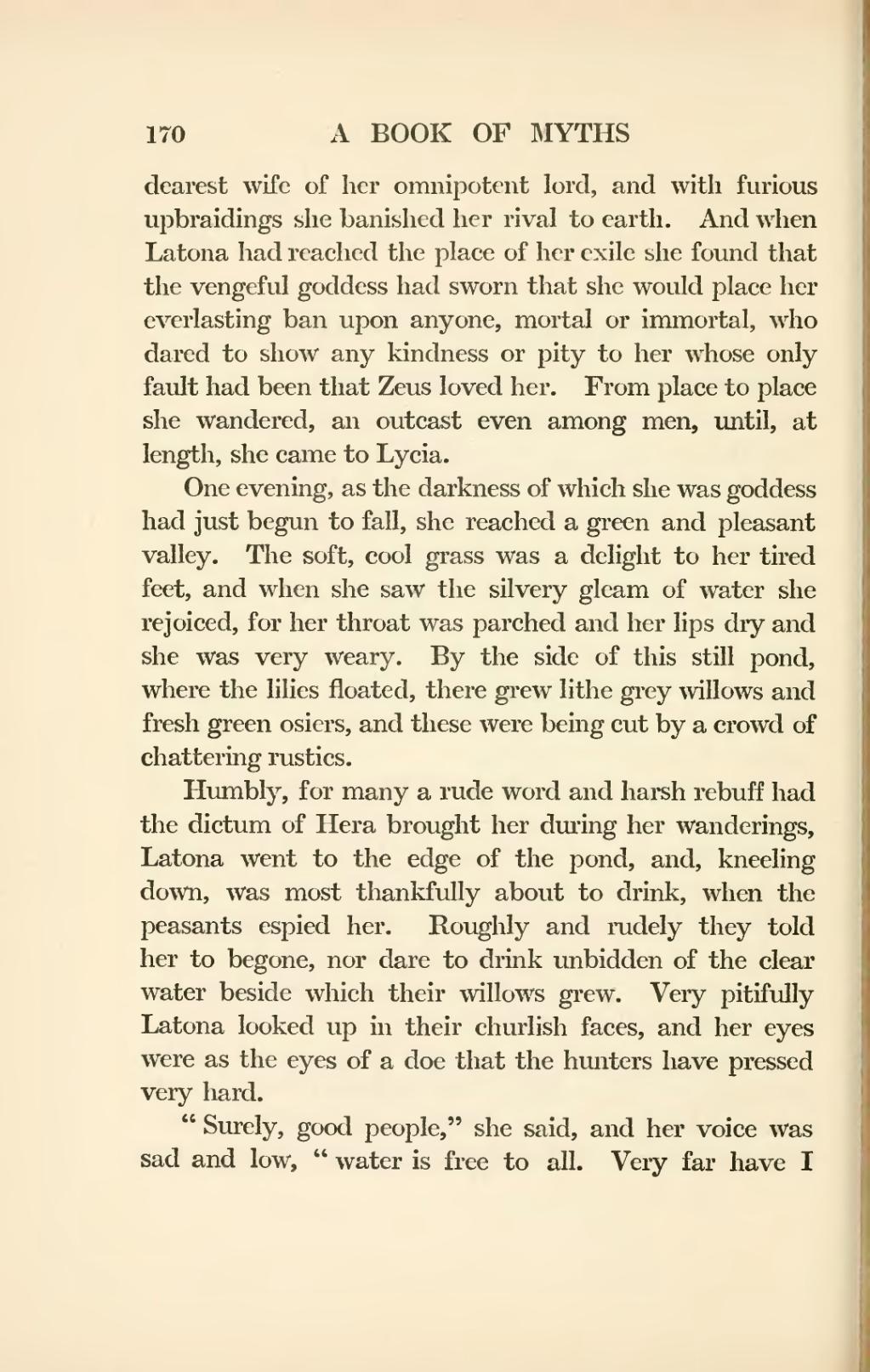dearest wife of her omnipotent lord, and with furious upbraidings she banished her rival to earth. And when Latona had reached the place of her exile she found that the vengeful goddess had sworn that she would place her everlasting ban upon anyone, mortal or immortal, who dared to show any kindness or pity to her whose only fault had been that Zeus loved her. From place to place she wandered, an outcast even among men, until, at length, she came to Lycia.
One evening, as the darkness of which she was goddess had just begun to fall, she reached a green and pleasant valley. The soft, cool grass was a delight to her tired feet, and when she saw the silvery gleam of water she rejoiced, for her throat was parched and her lips dry and she was very weary. By the side of this still pond, where the lilies floated, there grew lithe grey willows and fresh green osiers, and these were being cut by a crowd of chattering rustics.
Humbly, for many a rude word and harsh rebuff had the dictum of Hera brought her during her wanderings, Latona went to the edge of the pond, and, kneeling down, was most thankfully about to drink, when the peasants espied her. Roughly and rudely they told her to begone, nor dare to drink unbidden of the clear water beside which their willows grew. Very pitifully Latona looked up in their churlish faces, and her eyes were as the eyes of a doe that the hunters have pressed very hard.
"Surely, good people," she said, and her voice was sad and low, "water is free to all. Very far have I

